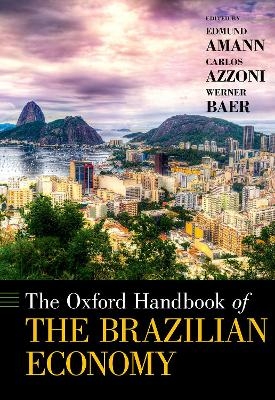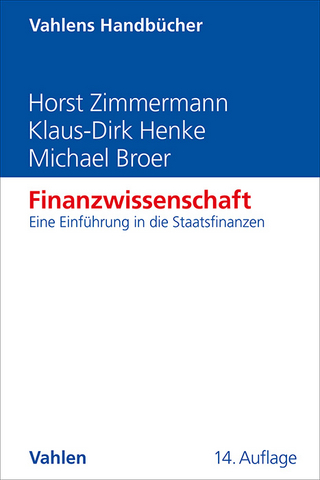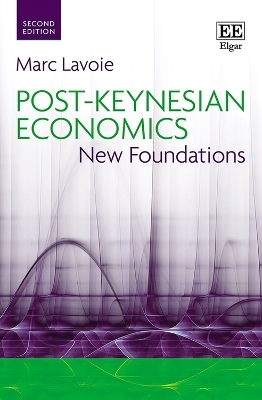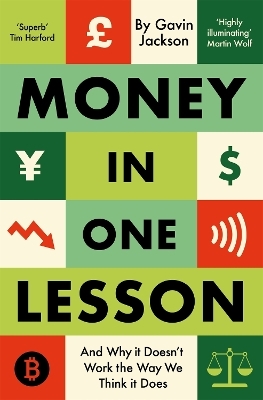
The Oxford Handbook of the Brazilian Economy
Oxford University Press Inc (Verlag)
978-0-19-049998-3 (ISBN)
Brazil is a globally vital but troubled economy. This volume offers comprehensive insight into Brazil's economic development, focusing on its most salient characteristics and analyzing its structural features across various dimensions. This innovative Oxford Handbook provides an understanding of the economy's evolution over time and highlights the implications of the past trajectory and decisions for current challenges and opportunities. The opening section covers the country's economic history, beginning with the colonial economy, through import-substitution, to the era of neoliberalism. Second, it analyses Brazil's broader place in the global economy, and considers the ways in which this role has changed, and is likely to change, over coming years. Particular attention is given to the productive sectors of Brazil's economy, for example manufacturing, agriculture, services, energy, and infrastructure. In addition to discussions of regional differences within Brazil, socio-economic dimensions are examined. These include income distribution, human capital, environmental issues, and health. Also included is a discussion of Brazil in the world economy, such as the increase in "South-South" cooperation and trade as well as foreign direct investment. Last but not least is a discussion of the role of the Brazilian state in the economy, whether through state enterprises, competition policy, or corruption.
Edmund Amann is Professor of Brazilian Studies at Leiden University. Previous to this he was Reader in Development Economics at the University of Manchester and Research Fellow at the University of Oxford Centre for Brazilian Studies. Carlos Azzoni is Professor of Economics in the Faculty of Economics and Administration at the University of São Paulo. His research focuses on questions of regional development and inter-regional disparities. Werner Baer was Lemann Professor of Economics at the University of Ilinois, Urban-Champaign. Prior to this he held a Chair at Vanderbilt University. Professor Baer's work focused on processes of economic development, industrialization and poverty alleviation.
1. Introduction
Edmund Amann and Carlos Azzoni
PART I: HISTORICAL PERSPECTIVE
2. The Colonial Economy
Flavio Versiani
3. The 19th and Early 20th Centuries
André Villela
4. Brazilian Structuralism
Joseph Love
5. Brazil's Import-Substitution Industrialization
Werner Baer
6. Experiences of Inflation and Stabilization, 1960-1990
Fernando Holanda
7. Leviathan Captured: Neoliberalism as Problem and Solution in Brazil
Philippe Faucher
8. Growth Volatility and Economic Growth in Brazil
Jorge Arbache and Sarquis J.B. Sarquis
PART II: MACRO POLICY AND INSTITUTIONS
9. The Brazilian Development Bank
Ricardo Cavalcante
10. The Evolution of Brazil's Banking System
Gustavo Cortes and Renato Marcondes
11. Brazil's Policy-Making Institutions, Quasi Stagnation and the Interest-Exchange Rate Trap
Luiz Carlos Bresser-Pereira
PART III: THE PRODUCTIVE SECTORS
12. Evolution and Sectoral Competiveness of the Brazilian Manufacturing Industry
Paulo César Morceiro
13. The Agricultural Sector
Carlos Bacha
14. Traditional Agriculture and Land Distribution in Brazil
Charles Mueller
15. Brazil's Agricultural Modernization and EMBRAPA
Geraldo Martha and Eliseu Alves
16. Manufacturing, Services and the Productivity Gap
Jorge Arbache
17. Energy in Brazil: Past and Future
José Goldemberg
18. Infrastructure
Edmund Amann, Werner Baer, Juan Villa, and Thomas Trebat
19. Trade Policies, from the 1930s to the present
Simão Silber
PART IV: BRAZIL'S REGIONS
20. Regional Disparities
Carlos Azzoni and Eduardo Haddad
21. Brazil's Northeast
Alexandre Rands
PART V: SOCIO-ECONOMIC DIMENSIONS
22. Changes in Income distribution in Brazil
Rodolfo Hoffmann
23. The Development of Brazilian Education: a Tale of Lost Opportunities?
Claudio de Moura Castro
24. Antipoverty Transfers and Poverty Reduction
Armando Barrientos
25. South-South Cooperation for Social Development: Brazil and Africa Examined
Anthony Hall
26. Labour Market Development in Brazil: Formalization at Last?
Celia Lessa Kerstenetsky and Danielle Carusi Machado
27. Environmental Issues
Ariaster B. Chimeli
28. The Economics of Health in Brazil
Antonio Campino, Maria Dolores Montoya Diaz, and Flavia Mori Sarti
PART VI: BRAZIL AND THE WORLD ECONOMY
29. Brazil, the BRICs and the changing landscape of global economic governance
Peri Silva
30. Brazilian Trade and International Economic Prospects in an Anti-Globalization Era
Donald Coes
31. The Evolution of Foreign Direct Investment in Brazil
Breno Augusto da Silva e Silva
32. Multinational Corporations from Brazil
Edmund Amann
PART VII: THE CHANGING ROLE OF THE STATE
33. The Rise and Fall of State Enterprises
Armando Castelar Pinheiro
34. Antitrust and Competition Policy in Brazil
Eduardo Pontual Ribeiro, Camila Pires-Alves, and Luis Carlos D. Prado
35. Corruption Scandals, the Evolution of Anti-Corruption Institutions, and their Impact on Brazil's Economy
Mariana Prado and Lindsey Carson
| Erscheinungsdatum | 30.08.2018 |
|---|---|
| Reihe/Serie | Oxford Handbooks |
| Verlagsort | New York |
| Sprache | englisch |
| Maße | 249 x 168 mm |
| Gewicht | 1520 g |
| Themenwelt | Wirtschaft ► Volkswirtschaftslehre ► Finanzwissenschaft |
| Wirtschaft ► Volkswirtschaftslehre ► Makroökonomie | |
| ISBN-10 | 0-19-049998-2 / 0190499982 |
| ISBN-13 | 978-0-19-049998-3 / 9780190499983 |
| Zustand | Neuware |
| Haben Sie eine Frage zum Produkt? |
aus dem Bereich


